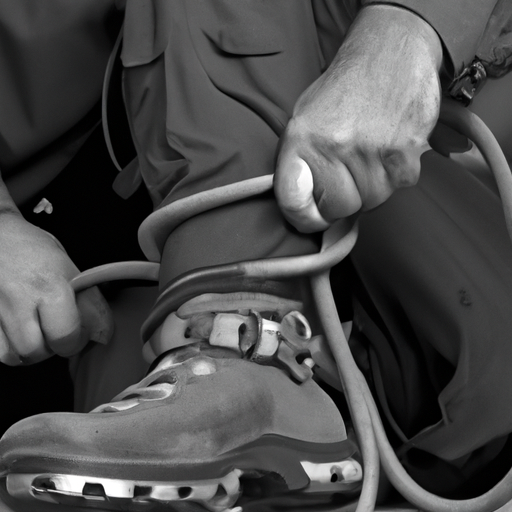In this article, you will learn about the timeline and requirements to become a journeyman lineman. We will explore the steps and qualifications needed to enter this profession and achieve journeyman status. Whether you are considering a career as a lineman or are simply curious about the path to becoming one, this article will provide you with valuable insights.
Becoming a journeyman lineman is not an overnight process. It requires dedication, hard work, and a willingness to learn. The timeline for becoming a journeyman lineman can vary, but it typically takes around four to six years of apprenticeship.
During this time, you will receive on-the-job training and attend classroom instruction to develop the necessary skills and knowledge. Additionally, there are specific requirements you must meet, such as completing a physical fitness test, obtaining a commercial driver’s license, and being at least 18 years old. By following this timeline and meeting these requirements, you can set yourself on the path to becoming a journeyman lineman and embarking on a fulfilling career in this field.

Becoming a Journeyman Lineman: The Timeline and Requirements
Career Overview
Have you ever wondered what it takes to become a journeyman lineman? If you’re interested in a career that blends physical agility, technical skills, and a strong sense of teamwork, then this might just be the path for you. As a journeyman lineman, you’ll be responsible for installing and repairing electrical power systems, including transmission lines, distribution lines, and substations. It’s a challenging career that offers great job security and excellent earning potential.
Education and Training Requirements
To kickstart your journey to become a journeyman lineman, you’ll need a high school diploma or equivalent. While a college degree is not necessary, having a solid foundation in math and science will certainly give you an advantage. Additionally, taking courses in subjects such as electrical technology, physics, and technical drawing can provide you with a head start in understanding the fundamentals of the trade.
Apprenticeship Program
Once you have completed your basic education, the next step is to enroll in an apprenticeship program. This program typically lasts around four to five years and is a combination of on-the-job training and classroom instruction. During your apprenticeship, you’ll work alongside experienced journeymen linemen, gaining hands-on experience while also attending classes to further develop your technical skills.
On-the-Job Experience
As you progress through your apprenticeship, you’ll gradually take on more responsibilities and work on more complex projects. This on-the-job experience is invaluable in honing your skills and developing a deep understanding of the electrical power industry. You’ll learn how to install and maintain power lines, troubleshoot electrical problems, and work safely in various weather conditions and challenging environments.
Certification and Licensing
To become a fully certified journeyman lineman, you’ll need to pass a certification exam. The requirements for certification may vary depending on the state or region you’re in, so it’s essential to check the specific requirements in your location. The exam will test your knowledge and skills in areas such as electrical theory, safety procedures, and equipment operation. Once you pass the exam, you’ll be eligible for your journeyman lineman license.
Safety Training
Safety is paramount in the lineman profession, as the work involves working at great heights and with high-voltage electricity. Throughout your training and apprenticeship, you’ll receive extensive safety training to ensure that you can work efficiently while minimizing risks. This training includes learning how to use personal protective equipment, understanding electrical safety protocols, and developing emergency response skills.
Physical Requirements
Being a journeyman lineman requires a certain level of physical fitness and stamina. The job often involves climbing utility poles, lifting heavy equipment, and working in challenging outdoor conditions. It’s important to maintain excellent physical health and strength to perform the tasks required efficiently and safely. Regular exercise and a healthy lifestyle will help you meet the physical demands of the job.
Specialized Skills
In addition to the technical skills and knowledge gained through your apprenticeship and training, there are a few specialized skills that can set you apart as a journeyman lineman. One such skill is the ability to work well as part of a team. Linemen often work in crews to complete projects efficiently and safely, so strong communication, collaboration, and problem-solving skills are essential. Additionally, having a keen eye for detail and being able to analyze electrical systems can greatly enhance your effectiveness as a lineman.
Job Outlook
The job outlook for journeyman linemen is promising. As the demand for electricity continues to grow, there is a constant need for skilled linemen to build, maintain, and upgrade electrical power systems. Moreover, with advancements in renewable energy and the ongoing modernization of power grids, the job opportunities for linemen are expected to increase even further. This makes becoming a journeyman lineman a stable and potentially lucrative career choice.
Conclusion
So, when do you become a journeyman lineman? The answer lies in a timeline that includes completing your education, enrolling in an apprenticeship program, gaining on-the-job experience, obtaining certification and licensing, and continuously developing your skills. While it may take several years to become a journeyman lineman, the rewards of this career are well worth the effort. From job security to competitive salaries, the opportunities for growth and personal development in this field are abundant. So, if you’re ready to embark on a fulfilling and dynamic career, take the first step towards becoming a journeyman lineman today!





